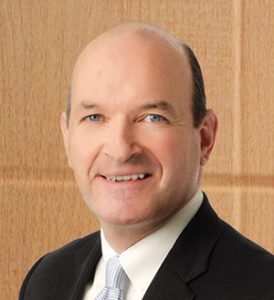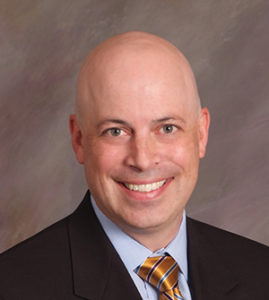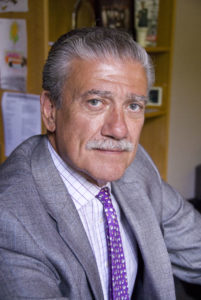By Emily Dings
The amputee community has had reason to feel optimistic in the months following the November 2018 midterm elections. The Affordable Care Act (ACA), which Republicans have long fought to repeal and replace, has been secured in the short term by a Democratic House majority. And the ACA’s provision that pre-existing conditions be covered by insurance has been not only protected but vocally championed by politicians on both sides of the aisle.
While this victory has understandably buoyed spirits, amputee advocates note that it’s not time to rest on any laurels. Some point out that statements of support for coverage of pre-existing conditions amount to mere lip service from politicians who vote to remove other parts of the ACA to which such coverage is inextricably linked, such as the individual insurance mandate.
“The grand bargain of the ACA was to cover everyone (or as many people as possible) and then prohibit insurance discrimination based on health or disability status. If everyone is under the tent, that brings down the cost for all,” explains healthcare and disability lawyer and double amputee Peter Thomas, JD. “It’s disingenuous to claim you support pre-existing conditions coverage, but then vote repeatedly to repeal the ACA.”

Thomas also cautions that the legislative realm is only part of the picture. New federal guidance allows states to determine how they use federal insurance subsidies—for instance, allowing the purchase of limited-duration insurance plans, which are not required to cover pre-existing conditions or essential health benefits such as rehabilitation services and devices. While this may reduce the cost of these health plans, it may also create junk insurance products that fail to cover benefits when patients need them most. So, while the ACA may still be in place, its implementation may vary widely among the states.
On the judicial front, U.S. District Judge Reed O’Connor of Texas recently sided with 18 Republican attorneys general and two governors who sued the federal government over the ACA, deeming it unconstitutional in light of Congress’ decision to remove the penalty for opting out of the individual mandate. The judge struck down the entire ACA law as a result, but as of early 2019, O’Connor has agreed to keep the ACA in place during the appeal process. Seventeen states are currently poised to appeal the decision.
Sen. Tammy Duckworth (D-IL), an amputee veteran, notes that the battle for ACA protection is one among several affecting amputees and other populations with disabilities. She is working to fight the ADA Education and Reform Act, which she calls “one of the biggest threats to the disability community right now.” The act would require businesses to address ADA compliance issues only when notified that an individual with disabilities has been unable to enter their facility due to an accessibility barrier.
Although the bill was rejected by the Senate (after narrowly passing in the House), Duckworth wants to ensure that it does not become law in the future. To this end, she has introduced an alternative bill that would maximize the tax credit for ADA-related renovations and make it available to more small businesses. In addition, she has worked to increase Medicare coverage for amputees, introduced legislation to improve accessibility in fitness facilities, and passed legislation implementing the “wheelchair rule,” which requires airlines to report statistics on the availability of functional wheelchairs and motorized scooters they have available.

Duckworth has seen firsthand how critical individual activism can be to effecting change on a national level. “These last two years have shown the power of contacting your member of Congress,” she says. “With-out everyday Americans calling and writing their representatives, and showing up to pressure them in person, millions of Americans would have likely lost their healthcare. People with disabilities were instrumental in this effort—they showed up to the Capitol day after day to say, ‘Please save our lives,’ and hold their elected officials accountable. I encourage everyone to continue their important advocacy.”
But how do amputees and their allies become effective advocates? Even individuals who are well versed in policy may find engagement with elected officials daunting. Enter Peggy Chenoweth and Dave McGill, JD, creators of the Amp’d podcast and website (www.ampdlife.org). Chenoweth, a disability rights activist and social media consultant within the limb loss community, and McGill, vice president of reimbursement and compliance at Össur Americas, developed the podcast in 2012 after discussing experiences they held in common as amputees.
Episode topics include interviews with amputee advocates, comparisons of healthcare plans, policy victories and setbacks, and—centrally—calls to action for the amputee community. The podcast, which has just celebrated its 100th episode, has expanded into a thriving online forum for people with limb loss/difference known as the “Amp’d Army.”
“It’s a platform we’ve found that allows us to really link people together,” McGill says. “We can have discussions in real time with others in the community.” Chenoweth and McGill keep the site updated with breaking news and share tips for social media advocacy, such as suggested tweets and hashtags.

Chenoweth and McGill devoted an entire podcast episode to how to speak with legislators (www.ampdlife.org/podcast/ep.-6-how-activists-can-speak-to-legislators). “One thing Peggy and I were concerned about was making sure that on topics such as advocacy, we were giving advice that is tactical, not just conceptual. We were intent on giving people real tools, so they knew exactly what to expect,” explains McGill.
“People become intimidated by the office,” Chenoweth says of activist newbies. But as moderator of the online community, she frequently hears from new advocates that “it wasn’t as scary as they thought.” After all, she says, when meeting with a legislator or staffer, you’re “just talking to people who you hired for a job about issues that matter.” When calling a legislative office, it’s important to be well informed and have your information ready so you can be confident and to the point, she adds.
While emails and phone calls can be very effective, in-person visits to legislators’ offices are especially powerful. “When you go in and sit face-to-face, you are seen as an expert,” Chenoweth says. “When you can make your story relatable, doors start to open.” Even if you meet with a staffer rather than a legislator, having the individual’s attention will give you “power in that moment.”

“Right now, it’s most important for the community to fight against becoming complacent,” Chenoweth urges, and to “remain informed and active” through membership in activist organizations such as Amp’d and the Amputee Coalition (www.amputee-coalition.org). When the importance of pre-existing conditions coverage slips out of conversation, she advises, keep bringing it back up. “Know where things are in legislation, play the long game, and stay focused, so they don’t slip away.”
Going forward, McGill adds, it’s important for activists to “watch what’s happening in your state. We can expect to see more action at the state level than in years past. It’s likely that coverage for benefits at the Medicaid level will become increasingly important in a way it hasn’t been.”
He also draws attention to an issue that may affect amputee veterans specifically. “Right now, there’s a proposed rule for vets that would give the VA sole authority to determine where a vet gets care.” Since the relationship between patient and prosthetist is extremely personal, McGill notes, veterans with limb loss/difference should retain freedom of choice regarding who they see.
John D. Kemp, CEO and president of The Viscardi Center, a network of nonprofits that educate, employ, and empower people with disabilities, is well aware of the significance of the prosthetist/client relationship. A congenital quadruple amputee, he has used four prostheses for nearly his entire life. Although each device lasts only about five years, in 2015 Kemp found himself suddenly faced with a New York state insurance policy that provided coverage of only one limb per lifetime for anyone over the age of 18. His longtime prosthetist, Dan Bastian, CP, also an amputee, launched a petition to change the policy.

When the provision was eventually overturned for the 2016 coverage year, Kemp reflects, it represented a huge victory “started through one individual advocate.” But the win also underscored an important truth about advocacy work: Collaboration and amplification by the community are key. Bastian worked with the National Association for the Advancement of Orthotics and Prosthetics (in particular with McGill, then president of the organization), Thomas, and the Amputee Coalition to draft documents to reach New York legislators and federal agencies to bring awareness to the insufficiency of the coverage.
The Viscardi Center works closely not only with amputee organizations but with a number of cross-disability coalitions—including the Consortium for Citizens with Disabilities, the American Association of People with Disabilities, and the ITEM Coalition—in relationships of mutual support. Ironically, the potential for such connections may be hampered by two areas Kemp has identified as needing vast improvement: accessible information and communication technology (ICT) and improved transportation for individuals with disabilities.
“The issue of [ICT] accessibility is critical to me and my work,” he says, adding that barriers to accessibility were supposed to have been remediated under the Obama administration but still persist. “These days, ICT is an incredible way to make your voice heard,” Kemp says, noting the influence social media in particular can have over policy.
The inability to travel easily also hinders individuals with disabilities from benefiting from in-person communication and access to resources. People using public transportation to get to The Viscardi Center, for example, have had to ride multiple buses, crossing the street to depart one and board another due to current service area regulations. Such conundrums demonstrate that the road of disability advocacy is long, and—despite many notable victories—there are many miles to go.
TOP IMAGE: © shevchukandrey/Adobe Stock



